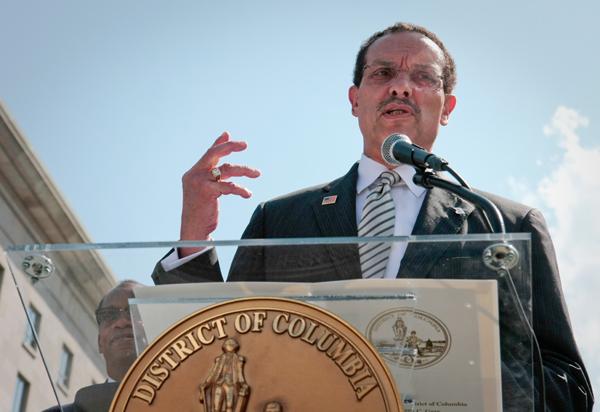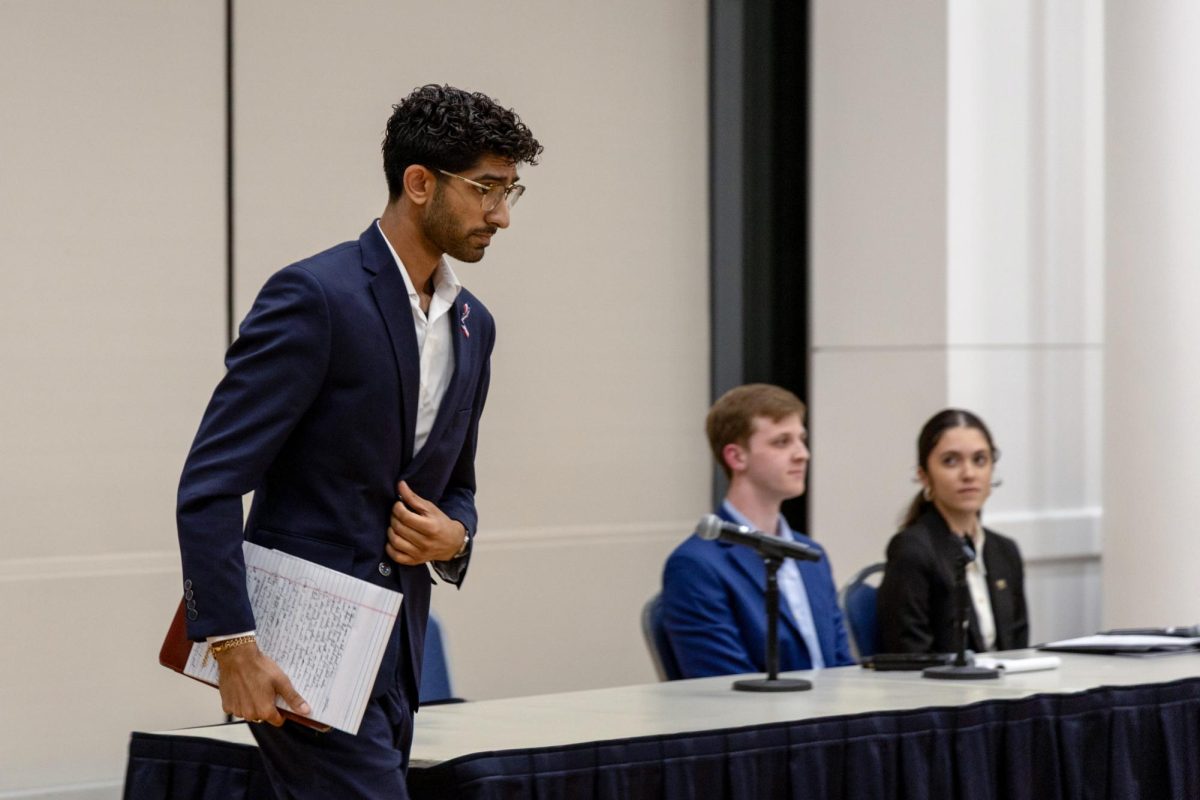
GW students stormed the office of Mayor Vincent Gray last week in an attempt to convince him to sign a controversial bill raising the minimum wage at D.C.’s largest retailers.
Members of the GW Progressive Students Union and other activists presented Gray, an alumnus, with tens of thousands of signatures in support of the Large Retailer Accountability Act. The mayor will either sign or veto the legislation this week, though Gray’s top aides have blasted it as a “job killer.”
The D.C. Council passed the “living wage” bill in July, and it would require stores such as Wal-Mart to pay employees $12.50 per hour instead of the city’s standard $8.25. It would be one of the highest minimum wage rates in the country.
The student activists also joined hundreds Thursday to protest in front of a Wal-Mart store in Hyattsville, Md., which coincided with demonstrations in 14 other cities.

Students chanted, “They say roll back, we say fight back” and “Wal-Mart, Wal-Mart you can’t hide, we can see your greedy side.” They held signs that read, “Wal-Mart Always Discriminates” and heard a speech from a fired employee.
Wal-Mart has threatened to scrap plans for at least three of six planned stores in the District if the bill becomes law – a move blasted by members of progressive student groups including the GW Roosevelt Institute.
“If you plan on bringing your business into our city, we demand our workers who move your freight, stock your shelves, cash your money and are at the core of your company’s success to be treated with full respect and nothing less,” said Yasemine Ayarci, the groups’ president.
Sam Nelson, a senior and an organizer of the Progressive Students Union, said he thinks a super minimum wage isn’t a stretch for certain retailers.
“Wal-Mart can easily pay this wage,” he said. The legislation would apply to retailers with corporate sales of $1 billion or more and that take up at least 75,000 square feet of space at a D.C. location.
Defenders of Wal-Mart’s wages say the stores relocating to D.C. will bring low-priced food and goods to blighted D.C. neighborhoods. Those defenders are likely winning.
“The chances of Mayor Gray signing off are very small,” Nelson admitted. The mayor has backed Wal-Mart’s plans to bring its stores to the city.
The Council could override Gray’s veto with a two-thirds majority. The bill passed this summer in an 8 to 5 vote, with Foggy Bottom representative Jack Evans voting in favor of it.
A similar bill crossed the desk of Chicago Mayor Richard M. Daley seven years ago, which would have mandated that large retailers pay at least $10 per hour, and it was one of the only bills he vetoed as mayor.







